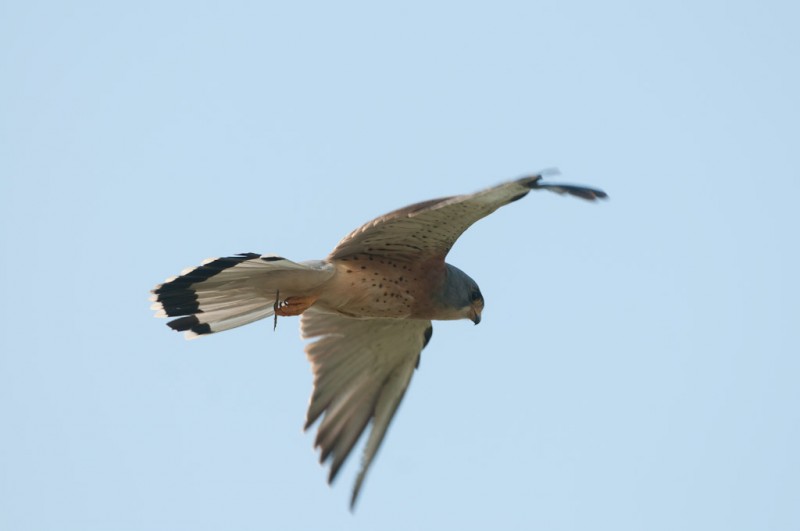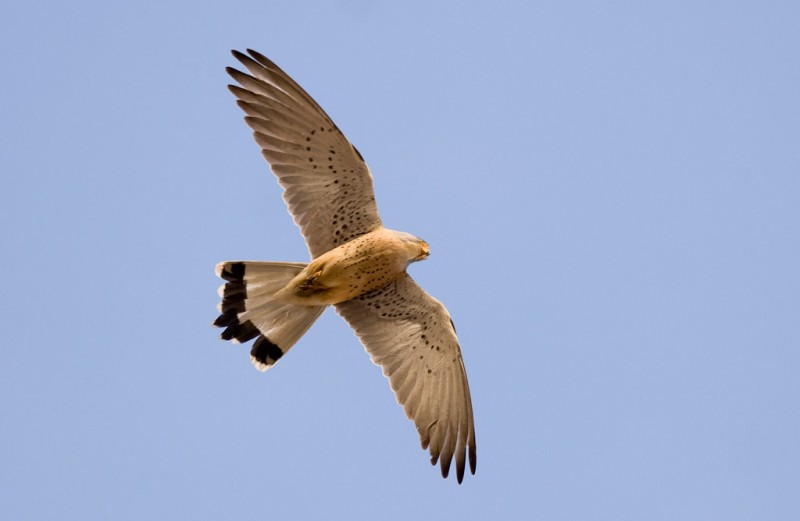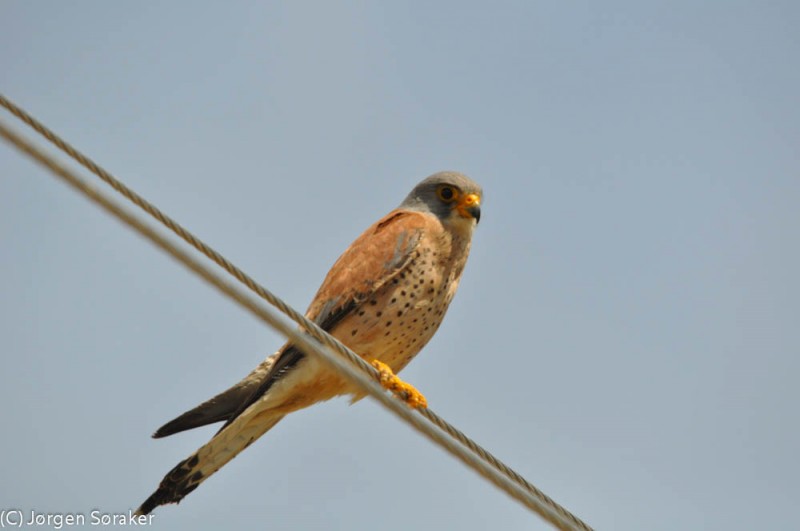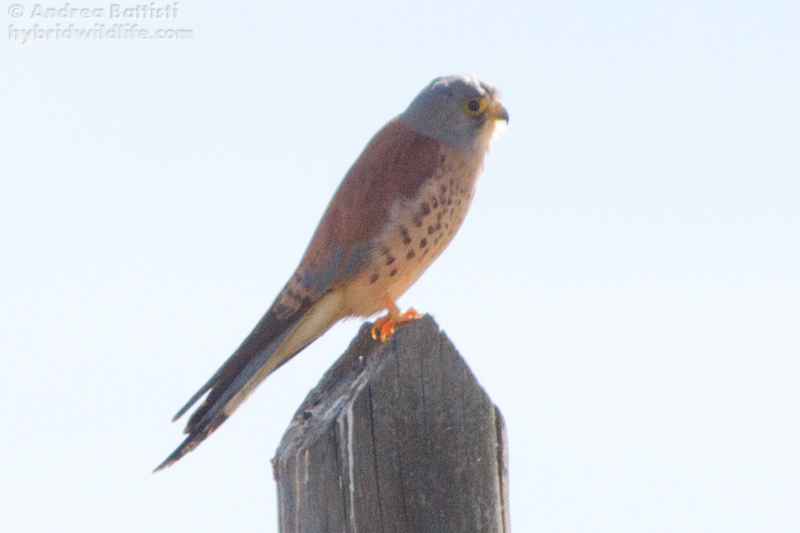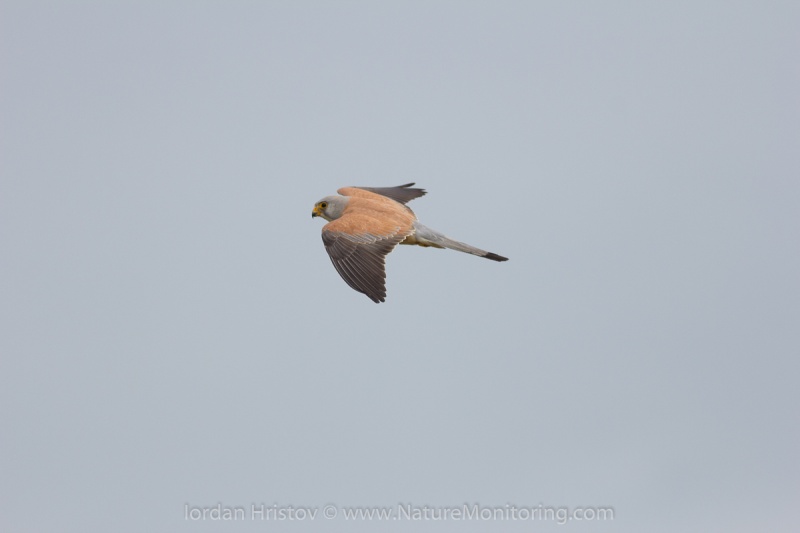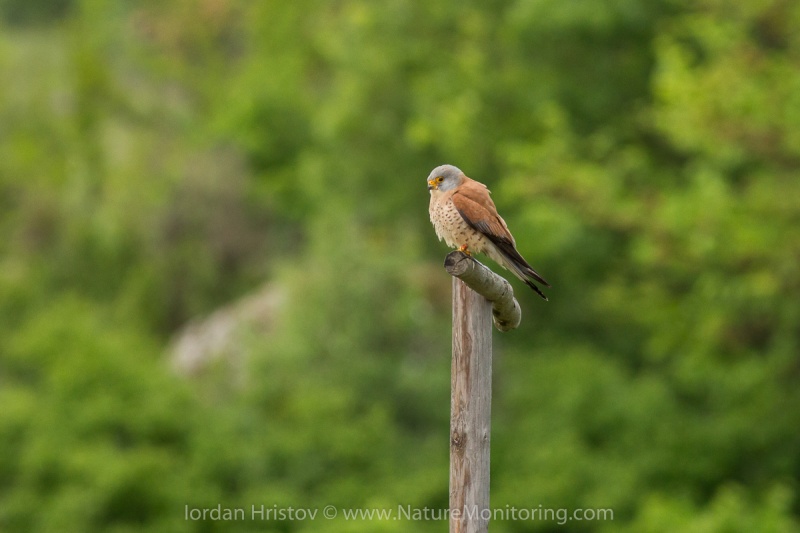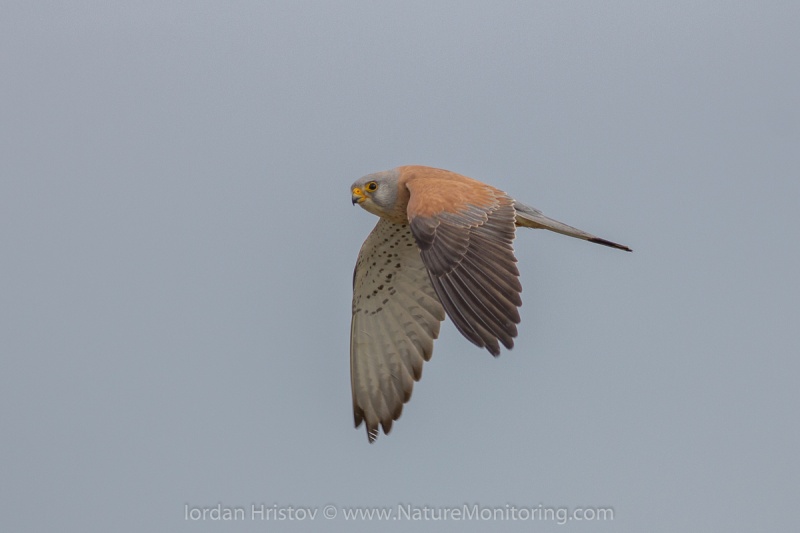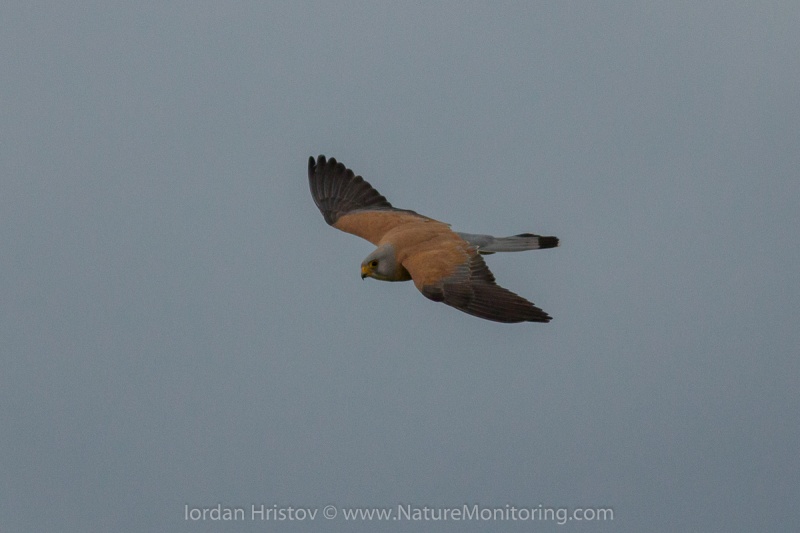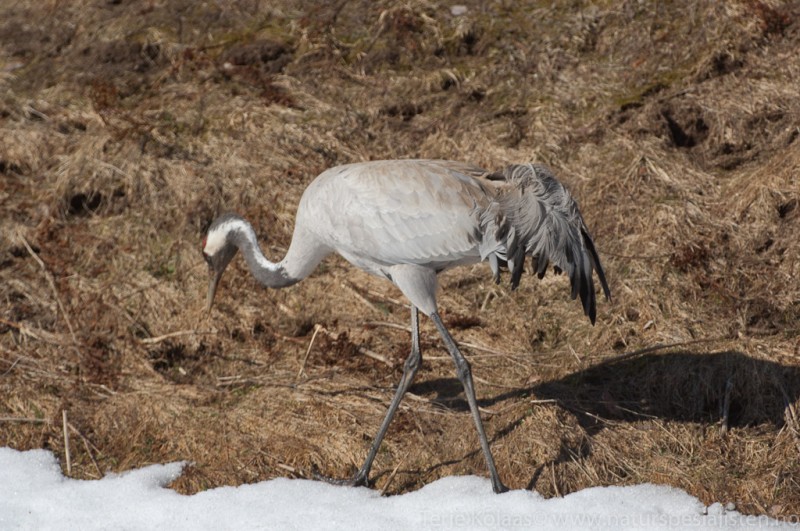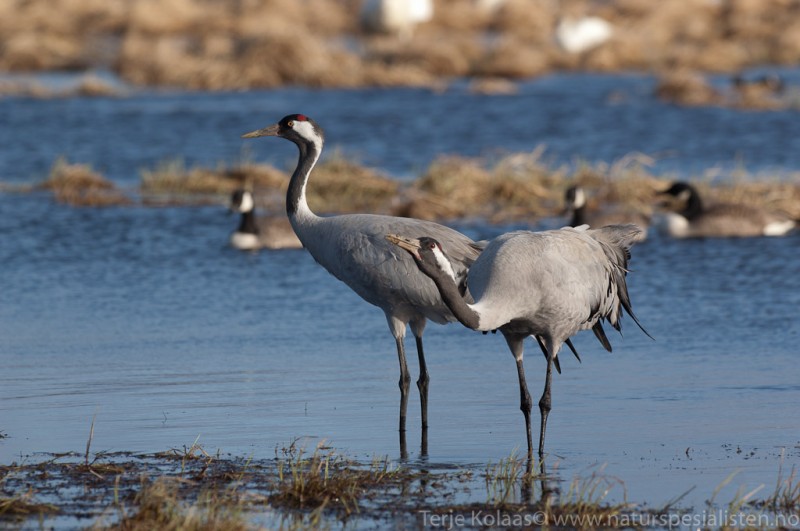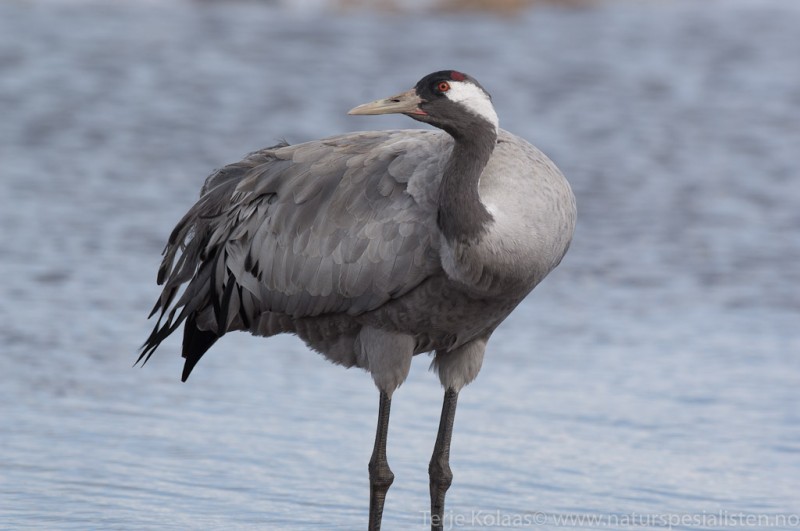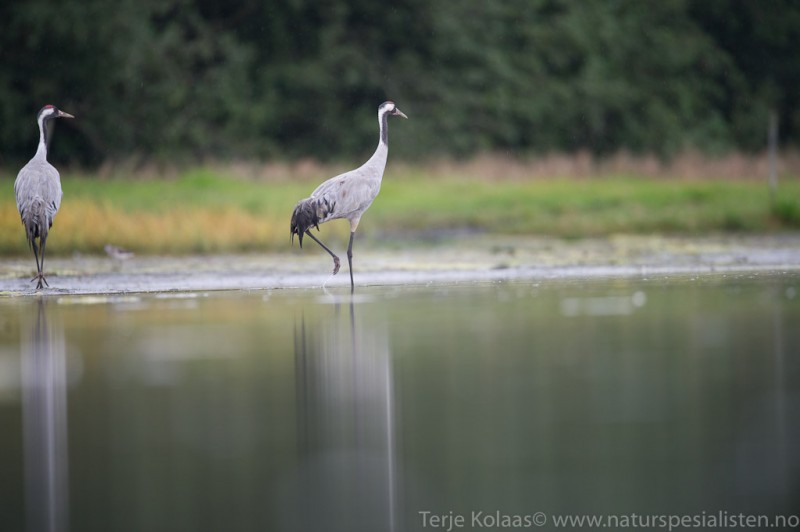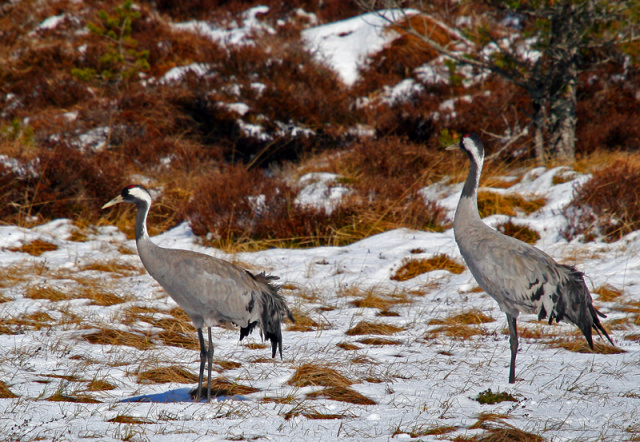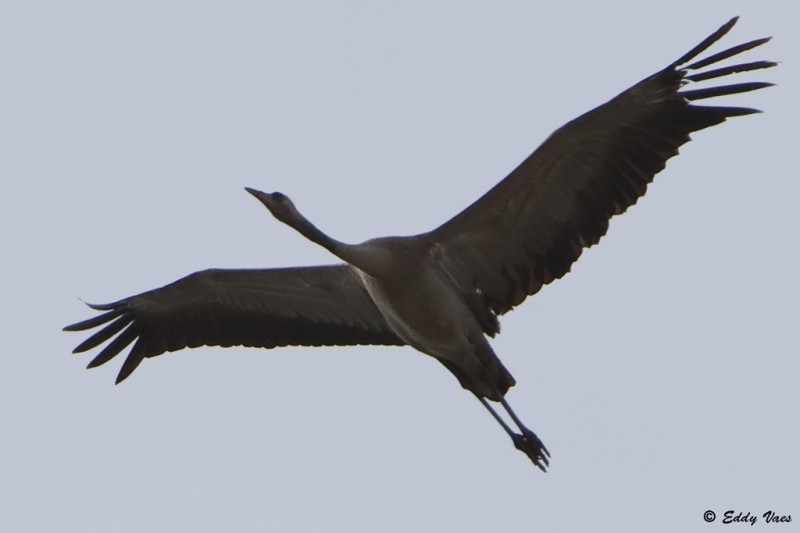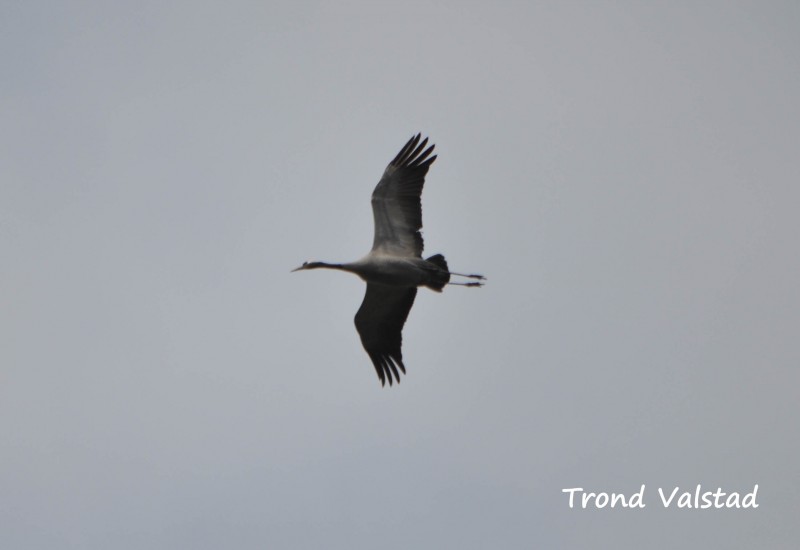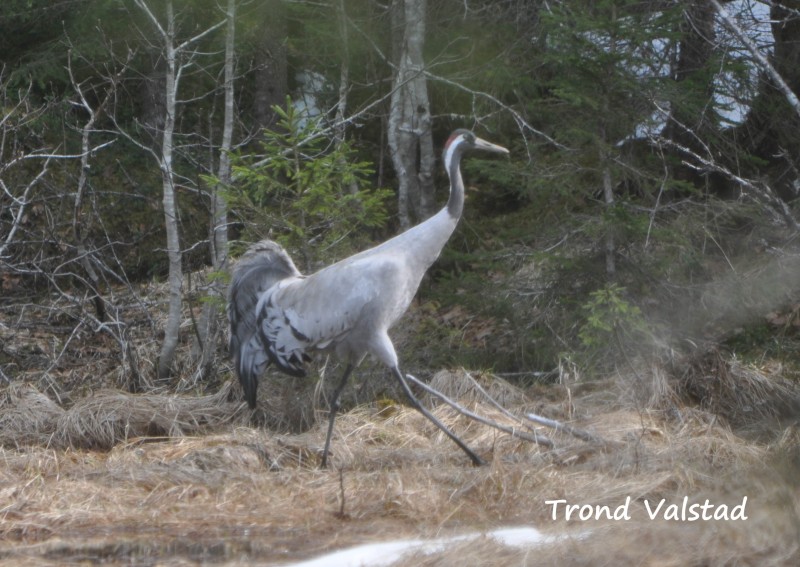Lesser Kestrel (Falco naumanni)
Crane (Grus grus)
Easily confused with Kestrel, especially in female and immature plumage. Adult male with clean, grey cheeks, no moustache-stripe and no streaking on crown. Upper wing, greater coverts are grey, contrasting with brick red forewing and back without dark spots. Belly sparsely spotted. Underside of wings paler with less barring than Kestrel, and with more pronounced dark wing tips and trailing edge. This is also more or less visible in females and young birds. Female and young birds has a less stern look than Kestrel, due to more faint facial markings. Mask do not extend behind the eye. Tail slighty shorter than Kestrel, usually with central feathers slightly elongated (rare in Kestrel). Talons pale, not black. Flight light and fast, with shallow wing-beats. Hovers less than Kestrel, but soars on up-winds. Identification of female/immature birds requires a combination of plumage, structural and behavioural (flight action) characters.
Sound:Contact call diagnostic, and quite different from Kestrel. A di- or trisyllabic "che che che", resembling Partridge in timbre, with two first syllables accentuated. Frequently used in colonies an din flocks. Also a Kestrel-like, plaintive trill "vriiiiii".
Contact call:
Distribution:
Wikipedia: map (se also Xeno-canto below)
Ecology:Birdlife ecology
Links:
Observation.org Latest observations
Image search Flickr NB! May give other species
CCA very large, long and slender bird. Bigger than Grey Heron. Plumage grey, with contrasting black throat and flight-feathers. White sides of neck. Tertials forms fluffed, ostrich-like rear end. Red crown visible at close range. Easily told from herons in flight by the straight neck. Juveniles with rufous head, lacking the marked pattern of adults.
Sound:Powerful, resonant and bugling "kriiiiioooo" in various forms. Very far reaching. Often heard in duet where the female immediately answers the male call at a slightly deeper pitch. Also very vocal when flocks meet.
Call, male/female:
Distribution:
Wikipedia: map (se also Xeno-canto below)
Ecology:Birdlife ecology
Links:
Observation.org Latest observations
Image search Flickr NB! May give other species
CC
 English
English Albanian
Albanian
 Armenian
Armenian
 Bulgarian
Bulgarian
 Catalan
Catalan
 Croatian
Croatian
 Czech
Czech
 Danish
Danish
 Dutch
Dutch
 Finnish
Finnish
 French
French
 Georgian
Georgian
 German
German
 Greek
Greek
 Hungarian
Hungarian
 Italian
Italian
 Latvian
Latvian
 Lithuanian
Lithuanian
 Macedonian
Macedonian
 Norwegian
Norwegian
 Polish
Polish
 Portuguese
Portuguese
 Romanian
Romanian
 Russian
Russian
 Sami : Lule sami
Sami : Lule sami
 Sami : North sami
Sami : North sami
 Sami : South sami
Sami : South sami
 Scientific names
Scientific names
 Serbian
Serbian
 Spanish
Spanish
 Swedish
Swedish
 Ukrainian
Ukrainian


